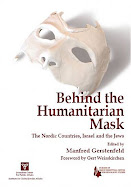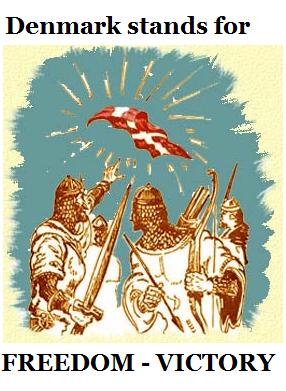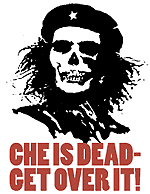We are writing 2008 not helping noticing some chilling analogues of 1938, Sudetenland and Kosovo, political correctness made it difficult to criticize the Nazi Government as it does with today's 21rst century Nazism the Leftist-Islamist Axis.
The EU can best be described as a 'coup d'etat' in slow-motion where the 'masses' are chloroformed with political correctness necessary in order to accept a perverse social engineering experiment worthy of Joseph Stalin.
From: Der Spiegel
By Dirk Kurbjuweit
Last week's summit in Brussels failed to resolve the EU crisis caused by the Irish "no" to the Lisbon Treaty. But Europe's politicians are determined to avoid asking the people their opinion. And they are right to do so.
"no" to the Lisbon Treaty. But Europe's politicians are determined to avoid asking the people their opinion. And they are right to do so.
It's been going on for 50 years: politicians making policy against the people. The only time anyone ever notices is when the people -- one people, in this case -- are asked for their opinion. It happened in Ireland recently, when the Irish made it clear that they refuse to accept the politics of scoundrels. They voted against the Lisbon Treaty
It was the big topic at the meeting of the European Council
What they were in fact discussing was a handful of tricks, tricks involving lawyers, tricks that would enable them to palm the Lisbon Treaty off on the Irish after all.
Of course, they would never admit it. It sounds awful, and it certainly doesn't sound democratic. But what if these smooth-operating politicians, and not the general public with their supposed wisdom, were right after all?
For now, it looks as though Brussels has no choice but to agree with the Irish. It is 4:20 p.m. on Thursday, and the current president of the European Council, Slovenian Prime Minister Janez Jansa, and his State Secretary for European Affairs Janez Lenarcic, are waiting to meet with their colleagues. They wait and wait, but no one shows up. After a while, the prime minister and his state secretary begin fidgeting awkwardly. Aren't Europe's politicians interested in Europe's future any more, they wonder?
One man, British Prime Minister Gordon Brown, eventually appears, and soon the rest trickle in, one by one. It takes a full hour before this contingent of European politicians has managed to shake hands. By the time they have all flooded into the conference room, the scene resembles a "Where's Waldo?" of European politics, a bustling, confusing mass of politicians and their aides.
The doors close. Everyone knows that what is about to happen -- supposedly a "debate" -- is nothing but a series of casual two-and-a-half-minute speeches at the microphone. Everyone has to step up and put forward the position of his or her respective country.
And this is something we are supposed to applaud? Something we should trust and support?
 representatives of individual countries and the European Parliament. The Irish have rejected a treaty that would have made Europe a slightly better place. And because a unanimous "yes" vote is required to make the treaty a reality, the Irish vote stands in the way of progress for all.
representatives of individual countries and the European Parliament. The Irish have rejected a treaty that would have made Europe a slightly better place. And because a unanimous "yes" vote is required to make the treaty a reality, the Irish vote stands in the way of progress for all. Until now, the EU has often behaved like a boa constrictor in the process of digesting a calf -- shapeless and motionless, but threatening nonetheless. Everything takes eons. It has been tweaking its own structures for seven years now. The Turks have been waiting to get in for at least two decades. Symbolically enough, waiting is the principal pastime for all observers at the Brussels summit -- waiting for a press conference, waiting for a briefing with German Chancellor Angela Merkel, waiting for the conference to end.
Europe, where everything takes longer than expected, has become too cumbersome for every schedule. And in Brussels, the metaphorical stomach of the snake, the place where its prey is leisurely digested, the slow passage of time is nothing short of excruciating.
The worst of it is that often the wait isn't even worth it. Europe, unlike a nation, provides no moments of beauty or enthusiasm. National politics offers little reason to rejoice, but at least nations experience the occasional glimmers of reconciliation, rare hours when they become what the philosopher Peter Sloterdijk once called communities of excitement.
Last Thursday, Germany was the lucky beneficiary of just such a moment of pure elation, when its national team was pitted against Portugal in the quarter-final of the European Championship soccer tournament. Six minutes before the match was due to end, Chancellor Merkel left a dinner she was attending with other European leaders to watch it on television, and she even remained glued to the TV for a full three minutes after the final whistle to savor Germany's victory. Then she returned to her dinner to discuss Ireland over dessert.
It was the kind of moment -- when most Germans are thrilled to be Germans -- that the European Union in its current form cannot have. The EU is nothing without politics. It would be a different story if Europe had a national football team, for example -- with a lineup that included Ronaldo, Ballack and Sneijder -- and it happened to trounce China 5:0. But that too is impossible, because the key ingredient, shared emotion, is missing. Emotions stem from a common history, and it has only been 60 years since Europe's history ceased to be a history of conflicts ending in major wars.
The attempt to act in concert is never as spectacular as confrontation, be it in the wars of the past or the football matches of the present. But that sense of the spectacular is absent in the conference room in Brussels, where men and women touch each other on the arm and embrace, and where today's principal recipient of these hearty caresses is Irish Prime Minister Brian Cowen, the man who in fact botched his homework. In Europe, however, this doesn't make a leader a pariah, but at worst the victim of excessive compassion.
Europe presents itself to the rest of the world with the same air of congeniality and nonviolence, which explains why it is occasionally disparaged as a female continent, as a Venus among the major players in world politics. But for the peaceable, this is precisely one of the reasons to be very satisfied with this European Union.
Of course, what takes place behind closed doors in Brussels is a poor excuse for debate. Nevertheless, at least we can comfort ourselves with the notion that the leaders of 27 nations, home to roughly half a billion people, are at least willing to make the effort. On Thursday afternoon, they discussed critical issues like the rising cost of energy and commodities -- the problems of exploding globalization, as Angela Merkel once put it. And when it comes time to face off against China, Russia or the United States, is going it alone in Germany's, Lithuania's or Ireland's best interest?
There are reasons to put our trust in these politicians. The only problem is that the way they behave in Brussels makes it all the more difficult for us to feel consistently good about Europe.
European moments are almost always the same. Even before they have finished deliberating, the heads of state and government send out Hans-Gert Pöttering
It appears to be part of the plan. The following statement appears at the beginning of the summit's draft conclusions: "The European Council took note of the preparatory work carried out in line with its December 2007 conclusions." Only the staunchest of believers in a united Europe are likely to continue reading.
But despite everything, there was one emotional moment during those two days in Brussels. Writing about it is strictly forbidden, because it happened in a closed-door meeting with the German chancellor, late at night, as she was coming from a dinner with her counterparts. It was a rare burst of enthusiasm, coming from Merkel, an almost fiery appeal on behalf of the Lisbon Treaty, the European Union and representative democracy. She even mentioned the word passion.
Journalists never applaud, not even in a football stadium after their national team has scored a goal. But when this speech ended a few journalists clapped their hands, briefly, before realizing that applause was completely inappropriate.
The trouble is, no one is supposed to find out about the chancellor's passionate little outburst. Otherwise someone could hit upon the idea that she is in fact wholeheartedly behind a strengthening of the European Union, perhaps even knowingly against the wishes of German citizens.
Merkel had cooled down by the time the closing press conference rolled around on Friday afternoon. Looking tired, she told journalists that the summit had "reached conclusions that I believe are constructive." There it was again, that Brussels boredom, that sense of slow, deliberate digestion, especially now that it was clear that Merkel had no concrete results to discuss. Instead of reaching agreement, the leaders at the summit agreed to disagree, reached face-saving compromises and dispensed the one thing that Europe seems to have in spades: time.
They are giving the Irish time to figure out what to do next. And they are giving the future president of the Council, French President Nicolas Sarkozy, and the European Commission time to develop a strategy to fight rising energy and food prices. Indeed, about the only sound Europe is likely to make in the coming months is that of a ticking clock. But perhaps this is intentional.
Perhaps the EU's secret strategy is called "strategic boredom" -- attract no attention and make no waves, but continue to plod along, quietly and stubbornly, ignoring the murmurs of concern from all around.
The scoundrels in Brussels have sold the European people a lot of things: a single market, the euro, the lifting of many border controls and, most recently, a binding global climate policy. These have all been good things, and they have helped make Europe an eminently livable continent. Despite the many dull moments and emotions that have been negative at best, the end result has been laudable.
continent. Despite the many dull moments and emotions that have been negative at best, the end result has been laudable.
Most of these improvements would have been held up, if not outright prevented, by referendums. Democracy doesn't mean having unlimited confidence in citizens. Sometimes the big picture is in better hands when politicians are running it, and a big picture takes time.
It's just like with the boa constrictor. When its protracted digestive process is over, the snake is once again an active, powerful and beautiful creature.



























1 comment:
Post a Comment